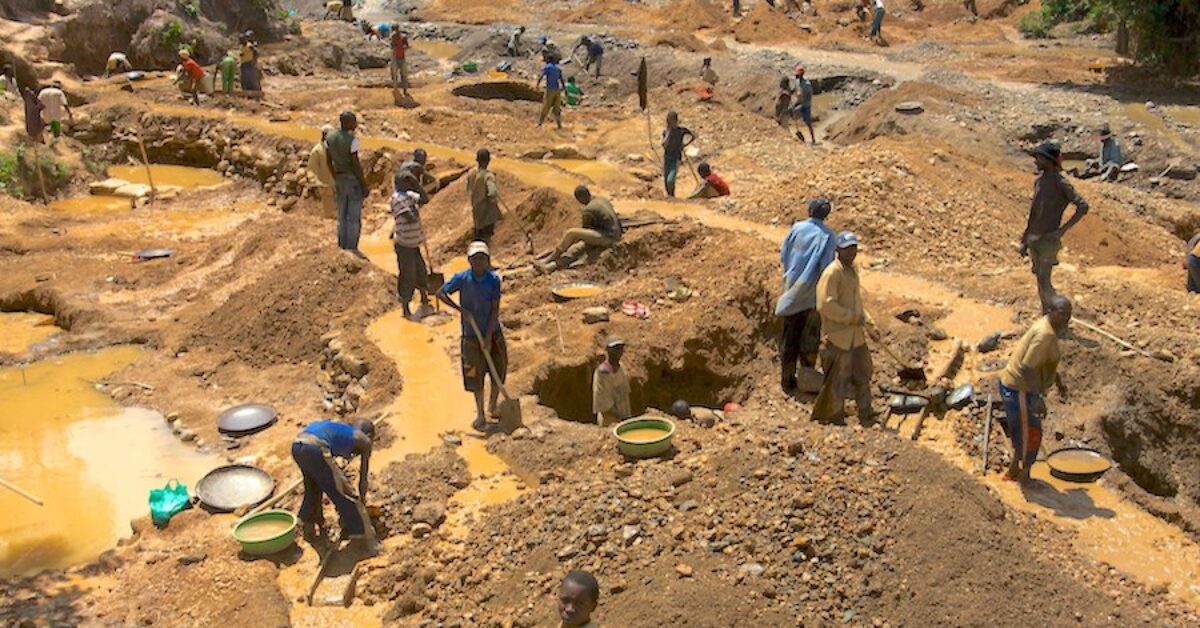Building accountability in the mining sector
The Democratic Republic of Congo is one of the world’s largest suppliers of technology metals such as cobalt, nickel, manganese, lithium, and tantalum. The DRC is also the fourth largest producer of copper and has a potentially long future in the mining sector due to the under-exploration and current development of mining projects of global significance. Although the mining sector is a key component of national development, accounting for approximately 20% of GDP and 98% of exports, it has never been able to create a positive impact on the DRC’s economy or on its people due to the corrupt and poorly monitored regulatory system.
In the mines of Katanga and Lualaba provinces, cobalt, lithium, and copper are mined in industrial and artisanal concessions. Each mode of operation lacks transparent due diligence in several key areas, including procurement, subcontracting, and joint venture reporting practices. Artisanal or small-scale mining (ASM) at some cobalt and copper mining sites is accompanied by illegal intervention by corrupt political and military actors, a lack of transparency in production and export data, and human rights abuses, including child labor, environmental degradation, and unsafe working conditions.
Congolese cobalt production is estimated to account for 58% of global production. Growing demand and the struggle for access to this valuable material by manufacturers of electric vehicles and consumer electronics can provide an opportunity for corrupt networks to enrich themselves in a poorly regulated and monitored environment. In addition, under the new mining regulations, mining companies are supposed to return a portion of their profits in the form of royalties for developing mining communities. Still, these mining royalties are often mismanaged or misappropriated by corrupt officials.
If managed transparent and accountable manner, the revenues generated from green minerals mined in these communities can contribute to poverty reduction in the DRC and leverage development. Building accountability in the mining sector is essential for ensuring a sustainable future for the industry and the planet. This essay will discuss two key strategies for building accountability in the mining sector: increased transparency and improved regulation.
Increased Transparency
Transparency is essential for ensuring accountability in the mining sector. Companies must be open and honest about their operations, including their environmental and social impacts. This can be achieved through public disclosure of information, such as financial records, environmental reports, and social impact assessments. This information should be made available to the public, allowing stakeholders to hold companies accountable for their actions. Additionally, companies should engage in meaningful dialogue with local communities to ensure that their operations are not causing any harm.
Improved Regulation
In addition to increased transparency, improved regulation is also necessary for building accountability in the mining sector. Governments should create and enforce regulations that ensure companies are operating in a responsible manner. These regulations should cover a range of issues, including environmental protection, labor rights, and human rights. Companies should also be held accountable for any violations of these regulations, with appropriate penalties imposed for non-compliance. This will ensure that companies are held responsible for their actions and incentivize them to operate in a responsible manner.
In conclusion, building accountability in the mining sector is essential for ensuring a sustainable future for the industry and the planet. This can be achieved through increased transparency and improved regulation. Companies must be open and honest about their operations, while governments must create and enforce regulations that ensure companies are operating in a responsible manner. Only by taking these steps can we ensure that the mining sector is held accountable for its actions and that its operations are not causing any harm.
